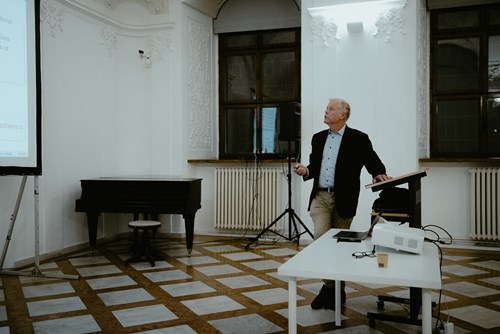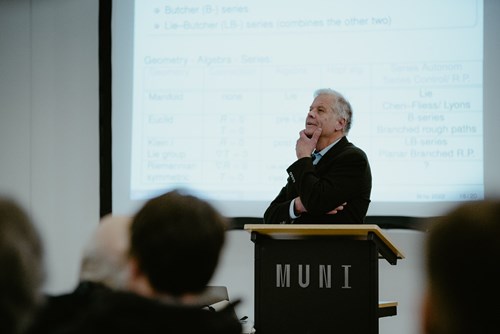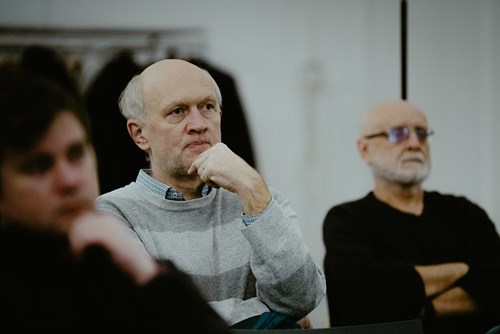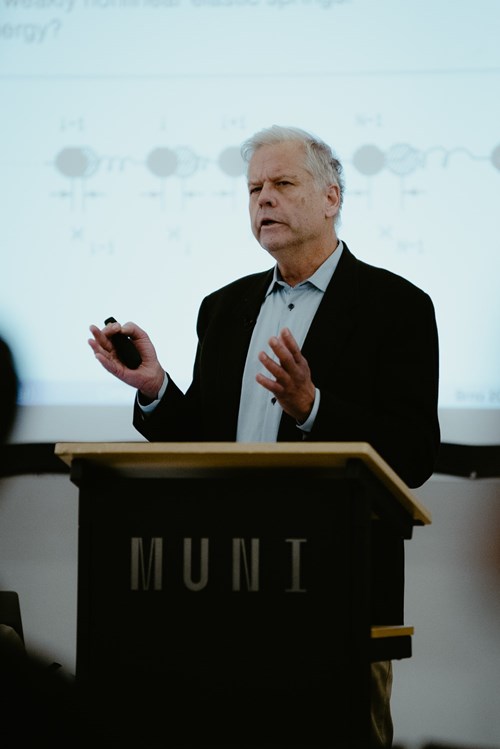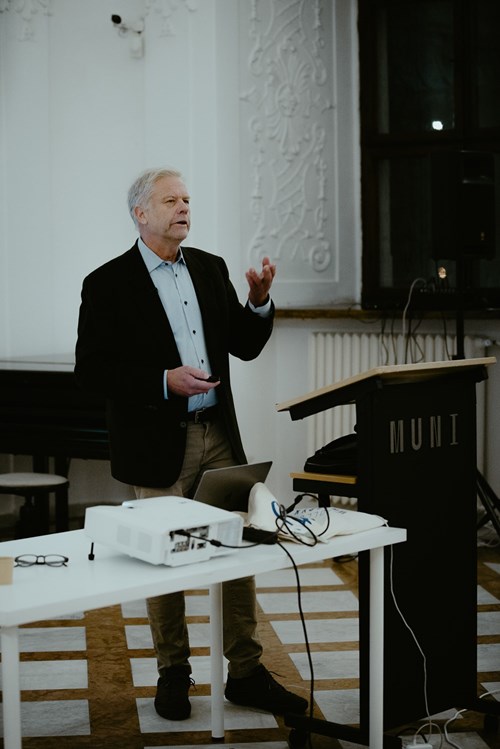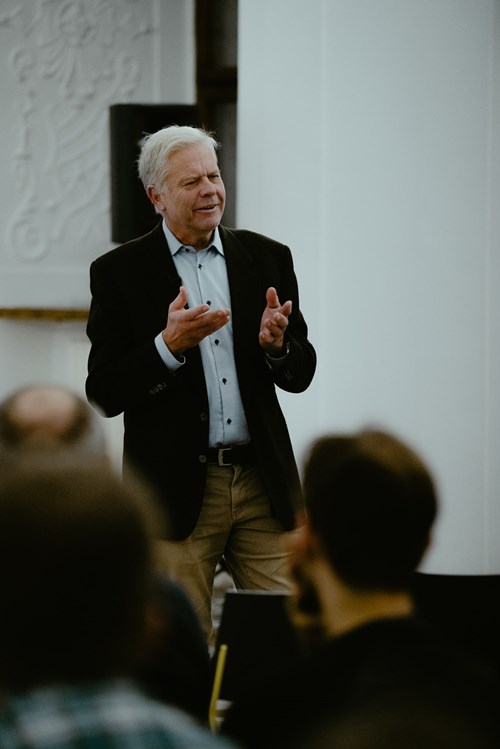Computational Mathematics between Dynamics, Geometry and Algebra
-
7 December 2022
4:30 PM - Governor's Palace, Moravské náměstí 1a, Baroque Hall
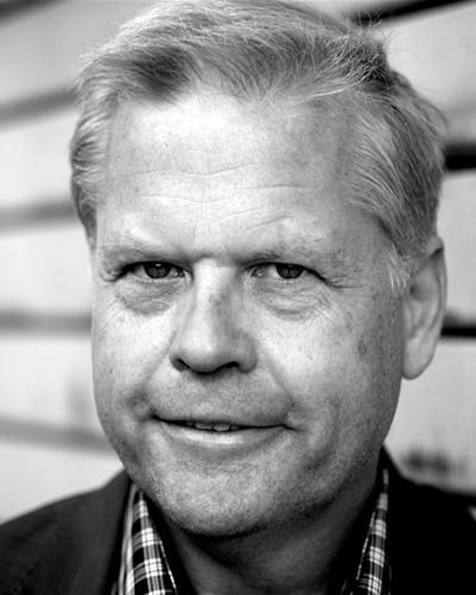
Hans Munthe-Kaas is professor of mathematics at the University of Bergen and leader of the new Lie-Størmer Center in Tromsø. In the last four years he has been the leader of the Abelprize committee. He is editor-in-chief of the journal “Foundations of Computational Mathematics” and President of the Norwegian Mathematical Society.
Simulation of dynamical systems evolving in time is a central subject of numerical analysis. Traditionally, the main goals in designing a numerical integrator were high accuracy, numerical stability and computational efficiency.
In the last decades it has, however, become increasingly clear that not all errors are equally bad. For example in the simulation of a conservative mechanical system it may be crucial to preserve the Hamiltonian structure of the equations, or to preserve conserved quantities such as energy, angular momenta and other first integrals. In robotics and control, there may be geometric constraints which are important to obey exactly.
The lesson learnt is that the most important goal should be to ‘make errors in the right way’, rather than just minimising the error over a single time step. For long time simulations, the quality of the error is more important than its magnitude in each step. This gave birth to the research field Geometric Numerical Integration, or structure preserving discretisation of differential equations.
The analysis of geometric integration algorithms has evolved into a rich area of research in the borderland between computational dynamics, differential geometry and combinatorial algebra, where the interplay between these three fields is enriching all of them.
In this talk we will survey recent results in these areas, and illustrate by computational examples. The talk is aimed at scientists with a general background in computational engineering problems.
Share event
